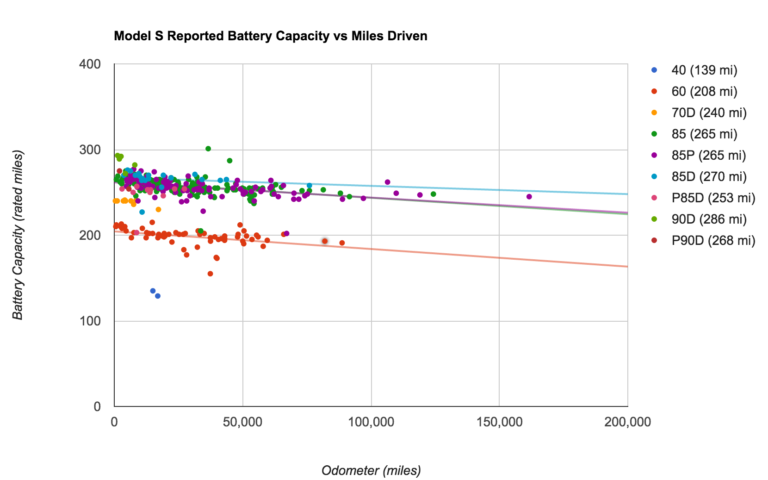A couple of weeks ago, I wrote about some interesting comments Tesla CTO JB Straubel made regarding vehicle-to-grid technology and using old EV batteries for stationary energy storage (for homes or the grid). There was a tidbit in there that I wanted to further highlight on its own, since it’s such a common question and concern — the tidbit about EV battery life.
JB stated, “We expect 10 maybe 15 year life at a minimum from these batteries. And, you know, the degradation is not entirely linear.â€
Before we go further, though, I think it’s important to note that batteries degrade from basically two things: cycling (being charged and discharged) and time (ah, old Father Time).
It’s unclear from this short statement whether JB is saying that the lifespan will come to a close after 10–15 years (minimum) more because of cycling or age.
Humorously, this expected lifespan flies in the face of a 2013 comments made by Sven Bauer, the CEO of BMZ, which at the time was Europe’s largest battery manufacturer (and perhaps still is, but I’m not seeing current data on this topic). He stated that “the battery life is not very long†for the battery cells Tesla uses, and that “they are never going to achieve 20 years’ battery life.â€
Whoops. Well, we are yet to see how long Tesla’s batteries will last before max capacity drops to 80% of initial max capacity (not that 70% isn’t good enough in most situations anyway), but a “10 maybe 15 year life at a minimum†sure sounds like some of them could hit 20 years, or at least come close to that. In any case, “not very long†seems to have been absurdly pessimistic.
Of course, as I noted in this article, Sven seemed to make an incorrect assumption, that Tesla’s 18650 battery cells are the same as the 18650 battery cells used in consumer electronics like laptops — they’re not the same, even though they are the same size.
So far, even Tesla cars that have driven over 80,000 miles are seeing little battery degradation.
Update: Here’s a chart from CleanTechnica community manager Bob Wallace showing the same data plotted by % of initial max range remaining:
Note that these results can’t be relied on 100% since they could suffer from self-selection bias, but they imply that Tesla’s batteries are holding up quite well.
We’ll know much more in the decade to come, but I’d take it as a great sign that Tesla’s highly regarded CTO is saying “We expect 10 maybe 15 year life at a minimum from these batteries.â€
For more on how batteries actually die, by the way, and a deeper explanation of “the degradation is not entirely linear,†I highly recommend this video from Jeff Dahn:
Source: Cleantechnica





